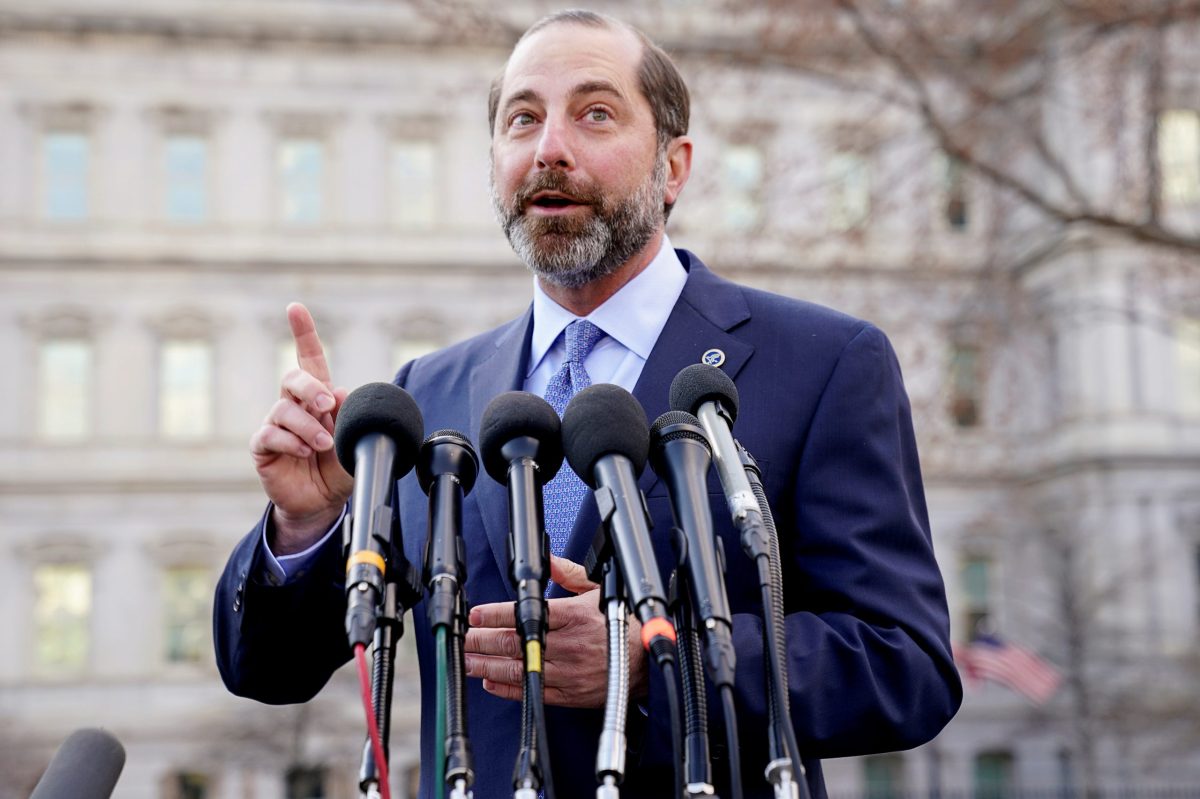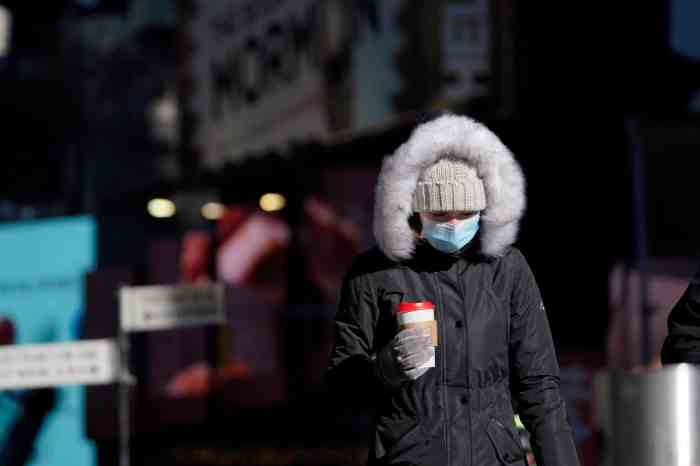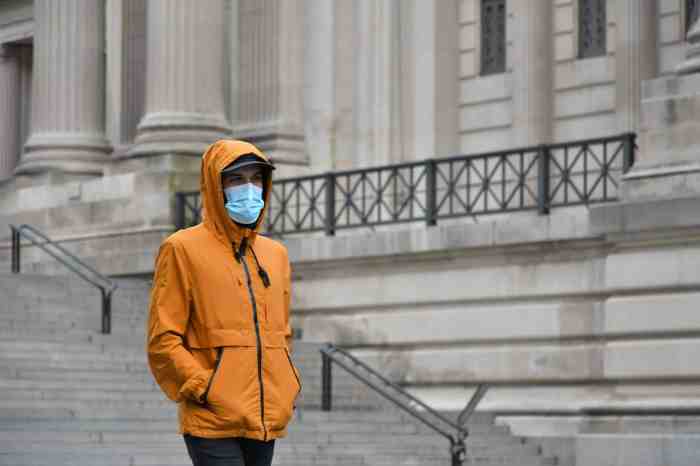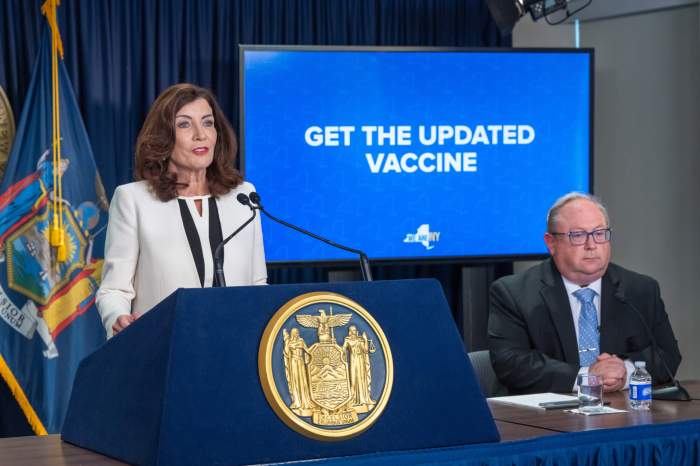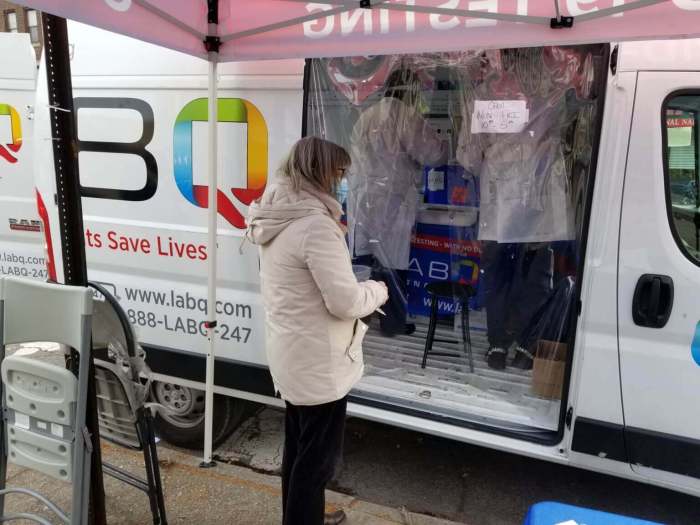BY DAVID LAWDER AND SUSAN HEAVEY
As U.S. authorities on Wednesday sought ways to deal with a growing outbreak of coronavirus, the Trump administration is considering cutting taxes, Democratic presidential candidates are canceling events and the governor of New York state is saying the federal government had “fallen down on the job.”
Treasury Secretary Steven Mnuchin said the administration was looking into taking steps that could put hundreds of billions of dollars into the U.S. economy to shield it from a slowdown brought on by the disruption from coronavirus.
Health Secretary Alex Azar said federal leaders were working with local officials in the hardest hit states, including Washington, California, New York, Massachusetts, and Florida, saying “strong mitigation steps” could help buy valuable time.
The governor of New York, however, said federal officials had left states scrambling to act on their own, including ramping up testing for the highly contagious – and sometimes fatal – respiratory illness.
“We can’t wait for the federal government because it’s not going to happen,” said Andrew Cuomo, who has deployed the National Guard to help contain an outbreak in the suburbs of New York City.
“The federal government has just fallen down on the job,” Cuomo, a Democrat, told MSNBC, adding that he had told other state governors, “You’re on your own.”
The number of U.S. coronavirus cases has risen steadily and has affected almost three-quarters of the states. More than 1,000 cases and 31 deaths have been reported.
As the outbreak spreads, daily life in the United States has been increasingly disrupted, with concerts and conferences canceled and universities telling students to stay home and take classes online.
Public gatherings have been suspended in a coronavirus “hot zone” in New Rochelle, a New York City suburb, and Chicago canceled its St. Patrick’s Day parade scheduled to take place on March 14, according to the parade’s website
Police wearing riot gear broke up a protest by hundreds of students at the University of Dayton in Ohio after the school announced the suspension of classes and on-campus housing on Tuesday, the Dayton Daily News reported.
Democratic presidential contenders Joe Biden and Bernie Sanders were left to reassess how to campaign in the face of the spreading outbreak, after the former vice president nearly swept a big day of nominating contests.
The two candidates canceled election night rallies on Tuesday, citing recommendations from public health officials to avoid assembling large indoor crowds.
Biden’s campaign also scrapped a Thursday get-out-the-vote event in Florida, which holds a primary vote next week to nominate a Democratic challenger to Republican President Donald Trump in November.
The White House is examining tax relief measures, loan guarantees, reimbursing workers for lost pay, aid to small and mid-sized businesses, and support for airlines, hotels and other travel businesses, Mnuchin said.
He likened the coronavirus outbreak to a hurricane, and said the costs needed to be picked up. But he said Trump felt strongly that U.S. companies needed to be protected, not bailed out.
“Whatever we do, kind of in the next 48 hours, that’s just the first step. We’ll be back. And I think there’s big bipartisan support. People understand that we have to help small and medium-sized businesses and certain industries,” Mnuchin told a House of Representative committee.
A central feature of the administration’s plan to counter the economic effects of coronavirus is payroll tax relief, although the extent and duration of the proposal were unclear.
Trump is scheduled to meet with bank executives at the White House on Wednesday.
New York and Washington state are struggling to make testing for the virus widely available, with local officials estimating it could take weeks more to reach peak testing capacity.
An unidentified flaw in test kits distributed by the federal government in February, which gave some false results, has set the country back in containing an outbreak that has infected more than 121,000 people worldwide.
Vice President Mike Pence said on March 4 that roughly 1.5 million tests would be available by the end of that week, while Trump told reporters on Friday that “anyone who wants a test, gets a test”.
But more than a week later, the ramp up has been much slower due to regulatory hurdles at the federal and state level, as well as logistical and technical challenges, according to healthcare providers, public health officials and test makers.
Washington Governor Jay Inslee was expected on Wednesday to restrict large gatherings in three counties at the center of the coronavirus outbreak in the state, according to the Seattle Times. The move will be aimed at sports, concerts and other cultural events and will not affect retail stores, the newspaper reported.
A package of Democratic proposals to address problems arising from the coronavirus outbreak could be voted on by the House as early as this week, including paid sick leave for those affected, a House Democratic aide said.
The bill, still under development, could also expand federal food aid programs, especially to low-income families whose children might not be able to attend schools where they receive meals.



